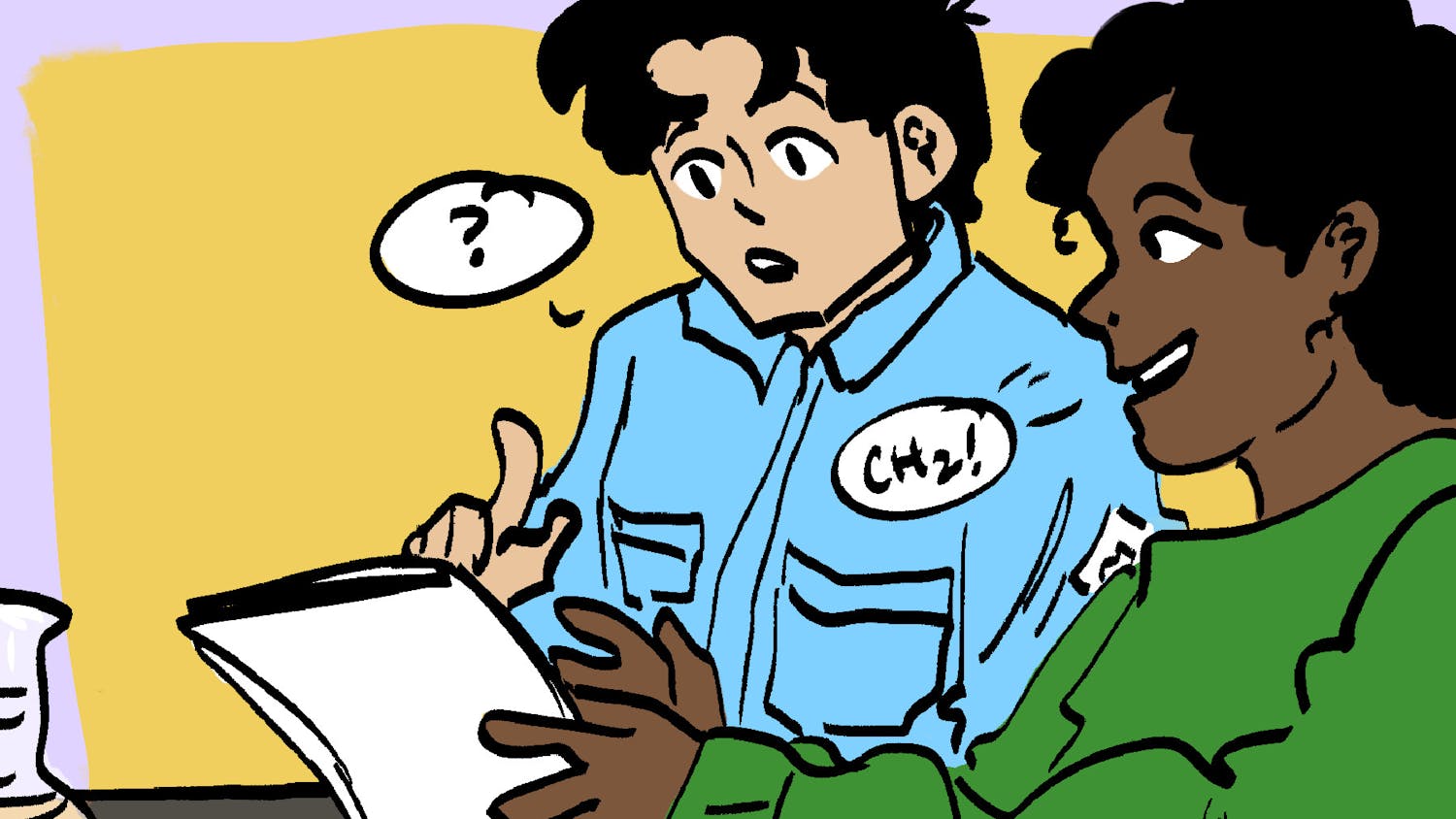Kids at my high school wore "Keep the White House white" shirts on Election Day. Churches rallied together at a school board meeting to support the dissolution of the Gay-Straight Alliance Club. Once, I got a cheeseburger thrown at me for standing at an intersection with an "Obama 2008" poster.
Growing up with incredibly open-minded parents, I was taught to ignore those opinions, to stand up against the ignorance of our community. A 4,000 person town in Alaska wasn't the easiest place to practice tolerance, but I accepted the challenge, embracing politics with a particular gusto. My senior year in high school, I volunteered for the Obama campaign. I came into Dartmouth "sure" of my interests, planning to double major in economics and government.
Two years later, I am a double major in religion and psychology, and anyone who knows me would agree that I am probably the least likely person to ever work in politics. Let's face it, I am far too socially awkward, I couldn't name the GOP candidates if I tried and I don't put enough effort into my hair to be in the public eye.
Within a term of being at Dartmouth, my passion turned to apathy, and I realized that my staunch liberalism was based more on my aversion to the close-mindedness of my hometown than on an actual belief in the views I was supporting. Dartmouth didn't change my views, but it made me re-evaluate what they were in the first place.
Students interviewed by The Mirror voiced similar opinions, holding that while they may not have heated political debates in Collis, they do have strong opinions that have developed throughout their time at Dartmouth.
While Ali Procopio '13 had always considered herself a Democrat before coming to Dartmouth, her experiences here changed her understanding of the label.
"I've always been liberal I've just come to understand what [liberal'] means," Procopio said.
Similarly, Kurt Prescott '12 has made an effort to move beyond basic political stereotypes since coming to Dartmouth. Since heading to Hanover, Prescott has become "disillusioned with the American political system," noting that a party based system "dichotomizes people in ways that they shouldn't be split."
Like Procopio, Prescott said he remains "liberal" in his beliefs, but has reassessed what the term means to him.
While some grow stronger in their previously held beliefs, others have made drastic changes since entering college. Mel Pastuck '11 said that her mother wanted her to attend Dartmouth because of its conservative reputation.
Upon entering Dartmouth, Pastuck considered herself both socially and economically conservative. Within a term, however, her perspective changed but not because she was surrounded by diehard liberals who quashed her beliefs with their abrasive crunchiness.
Dartmouth is not as conservative as some think, Pastuck said. Prescott and Pastuck agreed that while economic conservatism does exist at Dartmouth, social conservatism is harder to come by, or is, at the very least, less openly voiced.
Pastuck noted that students will listen to others' points of view on less personal issues, but open opposition to gay marriage or abortion may bring about a negative reaction from peers.
For Ashley Afranie-Sakyi '13, Dartmouth's diversity changed her political opinions from a powerful mantra to a more personal belief system.
"I was the most conservative person in my family [before college]. My goal was to work hard and make money," Afranie-Sakyi said.
Afranie-Sakyi said she sought financial success, and as a result, subscribed to a set of conservative political views that she believed would protect this success.
If you work hard, you should fight to protect your resultant success be it power or privilege, she explained. Her opinions, however, began to change at Dartmouth, as her focus shifted from financial to personal success.
"I didn't understand the concept that money isn't everything until I got here," she said, citing her past classes, peers and timely absence of parental pressure as fundamental to her change in priorities.
"My shift was in personal values and the meaning of success," she said, "and now I'm liberal."
Prescott emphasized that beliefs are different than "politics," noting that the lack of political conversation at Dartmouth does not signify a complete apathy to political issues.
"Because we don't talk politics, we can choose our place on issues rather than simply identify with a party," he said.
While I personally no longer subscribe to the label of Democrat or Republican, Dartmouth has definitely made me stronger in certain aspects of my political beliefs. During my off-term last spring, I was asked not to wear a "Pride" T-shirt to work because it made my coworkers uncomfortable. Before Dartmouth, this would have made me angry. In high school, I probably would have made some snarky comment about "conservative assholes" and the like. After two years at Dartmouth, it still made me angry, but because of my college experiences, I had much more to say. My argument was based in thought rather than solely in emotion.
You can stand by your beliefs at Dartmouth, or you can recreate them completely. You can change them daily, or not waver at all. And it's even okay to be unsure.
Procopio said that, even at Dartmouth, she has not yet fully defined her belief and value systems.
"I'm not there yet," she said. "It's a constant process."



